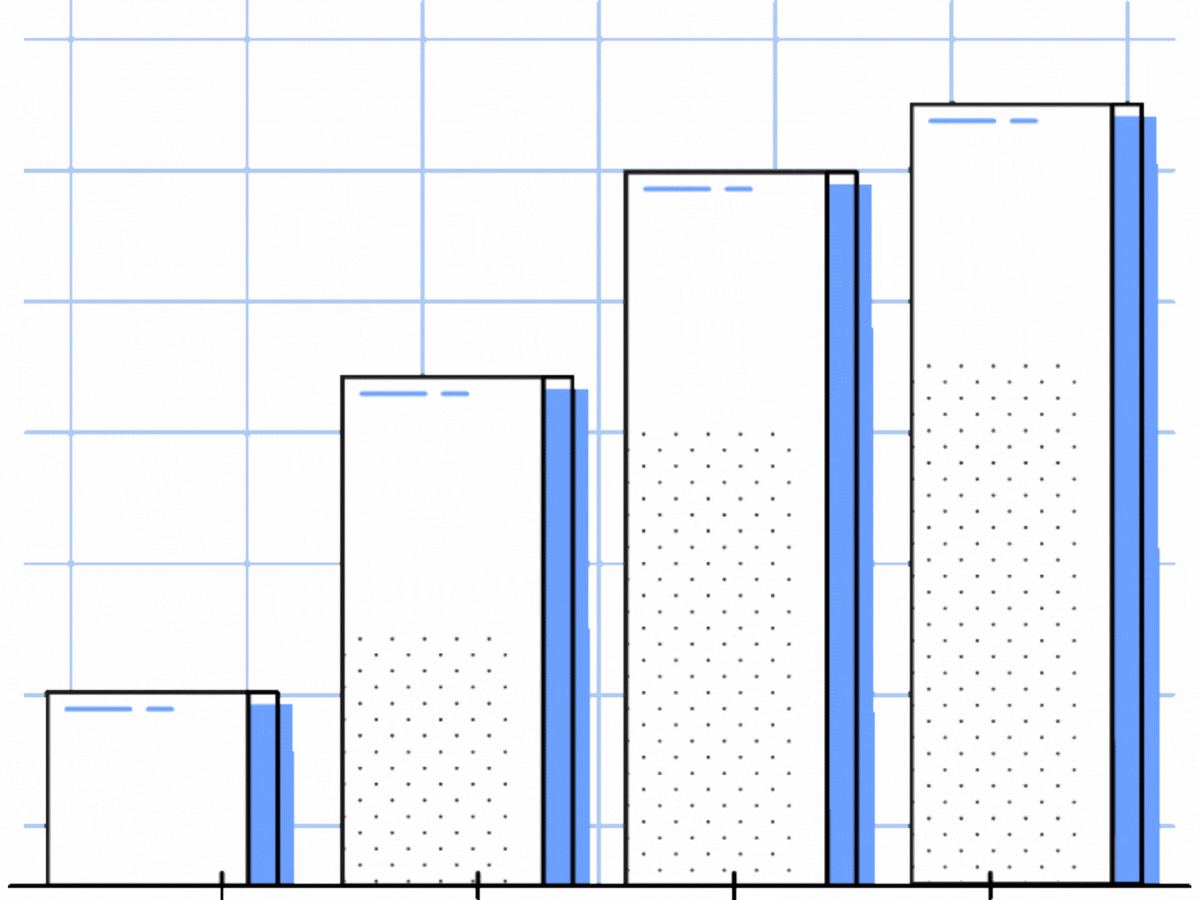3 Best Savings Account Types Every Arizonan Should Have
If you're building an emergency fund, saving for a big purchase, or piling up money to invest, using a savings account can put you on the right road. We know some of you still have the urge to hide that cash under your mattress, but there are other options to consider. Most banks and credit unions offer a variety of savings accounts. Some of the best savings account options include regular savings accounts, high-yield savings accounts, money market accounts, and certificates of deposit (CDs).
Getting "Interest"-ed in the Best Savings Accounts
See what we did there?😂 With a savings account, you earn interest, or a percentage of your balance, on the money in your account. Credit unions often call these earnings dividends and pay a rate on both savings AND checking accounts.
This means that your saved money is constantly growing. How quickly your money grows depends on the interest rate the credit union pays—which varies by account type and is set by the institution. These rates fluctuate based on several factors - like what other banks pay for similar accounts, what the market is doing, how high interest rates are on the lending side, and the Federal Reserve Bank policies. The interest rate is usually shown as a percentage, just like interest rates you pay out when you borrow money with a loan.
 Banks and credit unions will tell you the nominal rate and the annual percentage yield (APY). The nominal or named rate is the flat rate they pay. The APY is what you earn over the course of a year, expressed as a percentage of your principal. This includes funds earned via compound interest. The amount of money you earn depends on whether the account pays simple or compound interest, and how often the interest is compounded.
Banks and credit unions will tell you the nominal rate and the annual percentage yield (APY). The nominal or named rate is the flat rate they pay. The APY is what you earn over the course of a year, expressed as a percentage of your principal. This includes funds earned via compound interest. The amount of money you earn depends on whether the account pays simple or compound interest, and how often the interest is compounded.
Simple interest is calculated annually on the amount you deposit. With compound interest, which can be paid daily, monthly, or quarterly, the interest is added to your principal to form a new base on which you earn the next round of interest. This is when you're able to earn interest on your interest! 🦄MAGIC.
Simple Interest: 1% APY on $100,000 after 1 year = +$1,000
Compound Interest: 1% APY on $100,000 after 1 year = +$1005
Here's a quick tip to help you determine whether the interest you're earning is simple or compound: If the nominal rate and the APY are the same, you're earning simple interest. If the APY is higher, the interest is compounded.
Play with the numbers using our simple vs. compound interest calculator:
Insured or Bust
For everyday savings, the average Arizonan should have a federally insured savings account. All of the savings accounts we're discussing in this article are insured by the federal government - either the NCUA (for credit unions) or the FDIC (for banks). This means that your money is safe. Your funds are insured up to $250,000 or more, depending on the ownership details of your account.
But if you already have some nest eggs comfortably growing and you want to start building wealth more aggressively (taking on more risk) you could consider investing. It's helpful to chat with a financial advisor before doing so, because investments come with the risk of losing some of your money, even though you could possibly earn much more! No risk, no reward, right?
.gif?width=1200&name=savings%20blog%20images%20(1).gif)
Best Savings Account Type 1: Regular
The most basic accounts, where you can deposit and withdraw money at any time, are called regular savings accounts or statement savings accounts. Account activity such as deposits, withdrawals, fees, or interest earnings, along with your current balance, are reported in a printed or online account statement, usually once a month. This is similar to the monthly statement you receive for your checking account or credit card.
You can earn dividends on a regular savings account, but some institutions have requirements you must meet in order to earn. For example - holding a minimum required balance in the account. (Ours is only $5). Other institutions require things like auto-deposit, a higher minimum balance, or being a certain age. If you do meet these requirements - great!
The downside is that the rates paid on these types of accounts tend to be pretty low. Think 0.05% (one-twentieth of one percent) because the other savings account types hold the crown when it comes to dividend paying. Read on for more!
Another thing to keep in mind is that if you don't meet certain criteria, you could be charged a monthly maintenance fee just for having your savings account.😱 Avoid penalties like this by opening a free savings account. There's no monthly fee as long as you're enrolled in eStatements.
.png?width=513&height=385&name=savings%20blog%20images%20(1).png)
Regular Savings is the best savings account type for:
- Short-term savings goals such as large new purchases or vacations
- Savings that you want to keep federally insured
- Intermittent expenses such as new tires, insurance payments, holiday savings, birthdays, and more
- Emergency savings fund: quick and easy access to your insured funds is key if a real emergency does pop up. You don't want this locked away in a risky investment!
Copper State CU allows you to open as many savings accounts as you want, for free! You can also utilize the savings goals feature within online banking, which looks like this:
This helps if you only want one account but still have multiple goals.
If you're having a hard time finding money to save at all, you may want to download our budget plan eBook or our free budget spreadsheet download. This can help you conjure up some funds for saving and allow you to pay yourself first (like you deserve!)
Best Savings Account Type 2: High-Yield Savings Accounts
.png?width=200&height=200&name=High-Yield%20Savings%20Account%20(2).png)
Most banks offer hybrid accounts—part checking, part saving—called high-yield savings accounts. They're similar to money market mutual funds, but have the advantage of federal insurance, like we mentioned above. They allow for checks to be written from the account, or cash transactions completed, you just need to limit the number per month (usually 3 maximum.)
HYSAs typically pay higher interest rates than regular savings accounts, and may offer blended or tiered rates, which means you can earn an even higher rate on large balances or on part of your balance over a certain level. There are even options for businesses - business high-yield savings accounts can be helpful for small business owners.
The minimum required deposit is often higher than with a regular savings account. If your account falls below that mark, you may face substantial service fees, forfeit your interest, or both. Luckily, Copper State CU does not charge fees for our high-yield savings accounts, as a benefit to members.
High-Yield Savings Accounts are the best savings account for:
- Higher dollar amounts of savings
- Savings that you want to keep federally insured
- Savings you'll occasionally want to pay out via check
- Emergency savings funds, as long as your financial institution gives you quick and easy access to the account if needed
Best Savings Account Type 3: Certificate Accounts
Certificates of deposit (CDs)— sometimes called share certificates—are savings accounts known as time deposits. They generally pay interest at a higher rate than other bank or credit union accounts, so it should come as no surprise that there are some strings attached.
When you open a CD you agree to leave your money in there for a specific term, or period of time. You also agree that if you withdraw money from the CD before it matures when the term ends, you'll forfeit some or all of the interest you would have earned. So this isn't the best savings account for everyone, but it is a great option if you can leave the money where it is for a little while.
Typical terms include six months, one year, two years or five years - to name a few. But the term may be different than those listed above! There may be a minimum deposit—often $500—and some banks may pay slightly higher rates for large deposits. Check out Copper State CU's CD rates and terms to learn more..png?width=792&name=savings%20blog%20images%20(4).png)
When a CD "matures" a.k.a. hits its time deposit benchmark, you can put that new balance into another CD, transfer the funds to a different account, or have your credit union send you a check for the amount.
But you must tell the financial institution what you want it to do by the deadline it sets, or the decision will be made for you. If you do nothing, your money is usually reinvested into another CD with the same term. So speak up if you have other plans for that nest egg of yours!
A nice option to consider is that if you have bills that come due at specific times, such as tuition payments that you must make in August and again in January, your credit union may agree to let you open one or more CDs with a special term that will mature when you need your money, even if it's not the conventional six- or twelve-month period. They may even offer a slightly better rate than a shorter CD. That way, you'll not only have the money when you need it, but it will be easier to resist the temptation to spend it on something else.
CDs are the best savings account option when:
- Savings are needed on a specific date in the future
- Savings can afford to be 'locked away' for a certain period of time (at least 3-6+ months)
- You want to keep your funds federally insured
- You want to earn a bit more interest on your savings than a typical account
Conclusion
As you can see, every Arizonan has the need for one or more savings accounts. There are 3 primary types to be aware of - regular/statement savings account, high-yield savings account, and certificate of deposit.
In 2022, rates payable on savings are starting to creep up on all 3 types. The most important thing to remember is this: Don't stop saving, no matter what the rates are!
And if you aren't saving yet - today is the perfect day to start.
This article is intended to be a general resource only and is not intended to be nor does it constitute legal advice. Any recommendations are based on opinion only. Rates, terms and conditions are subject to change and may vary based on creditworthiness, qualifications, and collateral conditions. All loans subject to approval.


.png?width=792&height=495&name=Lilac%20Blue%20Bold%20Career%20Coach%203%20Steps%20Instagram%20Post%20(3).png)
